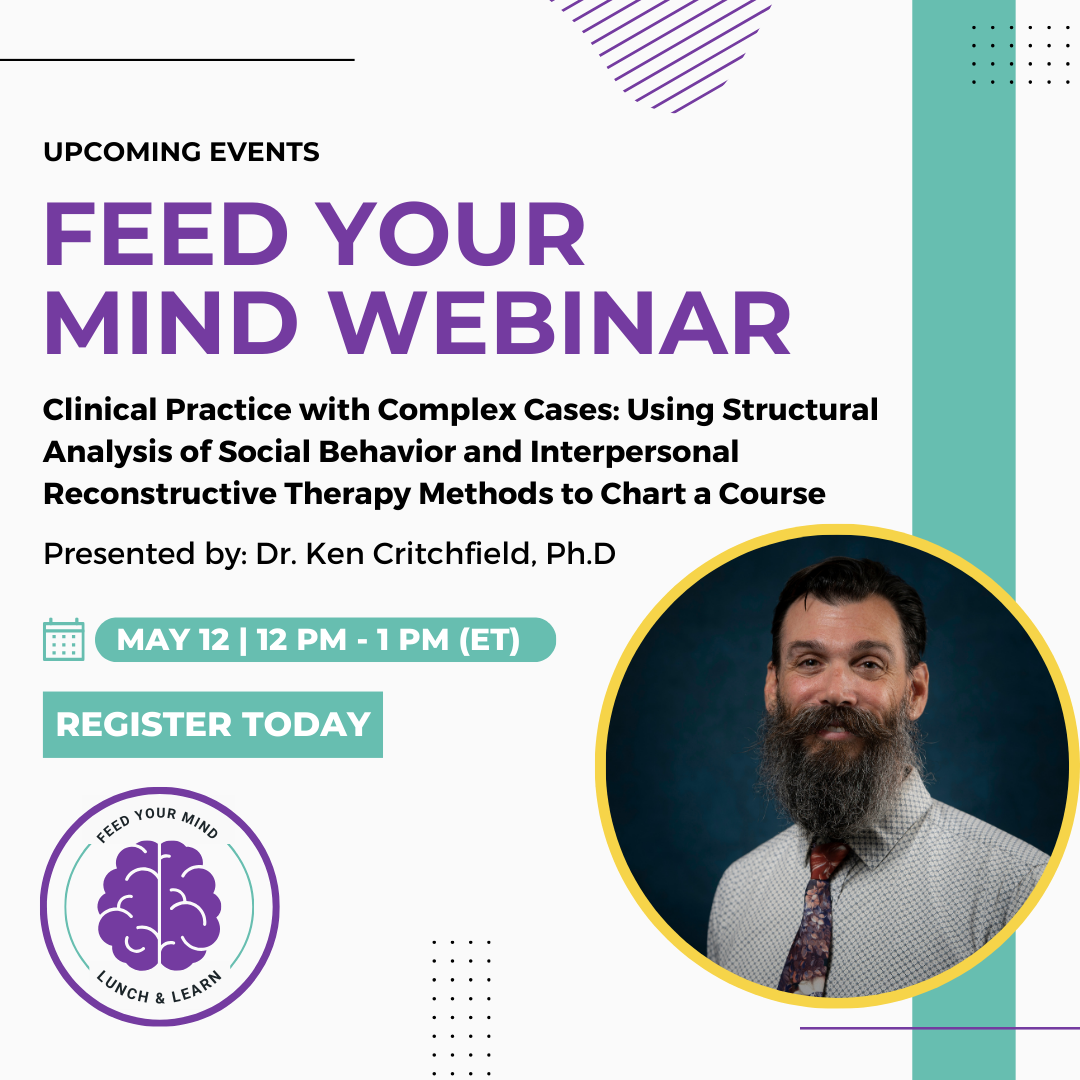FYM-Clinical Practice with Complex Cases: Using Structural Analysis of Social Behavior and Interpersonal Reconstructive Therapy Methods to Chart a Course

Workshop Description
Maladaptive relationship patterns that are learned in early attachment relationships can be replicated with others in adulthood in predictable patterns referred to as “copy process” in Interpersonal Reconstructive Therapy (IRT, Benjamin, 2003/2006; 2018). The underlying attachment-based motivations to repeat old patterns can provide barriers to response to standard treatments while also holding the keys to change with even difficult or “stuck” cases. Briefly, in IRT, views of self and others are understood to reflect rules, values, and experiences internalized in close attachment relationships. A case formulation (CF) guides intervention choices by clarifying links between presenting symptoms and learning that occurred in those relationships. The “gift of love” (GOL) hypothesis is that wishes to receive love and acceptance from specific internalized attachment figures, or learned ways to obtain reinforcement, shape problem patterns and associated symptoms. Ultimately, IRT seeks to help patients become aware of copied interpersonal and intrapsychic patterns, and the role they play in maintaining connection with internalized attachment figures. From there, the goal is to help a patient differentiate from the “family in the head” and pursue healthy behaviors and self-concepts. Lorna Smith Benjamin’s (2003/2006; 2018) IRT treatment paradigm is grounded in and integrates the seminal work of Bowlby, Harlow, Graham, Rogers and others. This workshop will deepen attendee’s prior understanding of IRT theory and method, from conceptualization to treatment, and includes an overview of research supporting validity of the IRT case formulation as well as the GOL as a mechanism of psychopathology and change.
Participants will be able to:
- Describe copy process theory and the IRT approach to case conceptualization
- Identify how patterns learned with attachment figures can shape and motivate problem behaviors in the present
- Describe how to enhance therapeutic responsiveness by addressing “family in the head”, especially with stuck or nonresponsive patients
- Practice applying SASB and IRT elements to a specific case example.
About Presenter
Ken Critchfield, Ph.D. is a tenured Associate Professor and Program Director of the Clinical Psychology Program of the Ferkauf Graduate School of Psychology of Yeshiva University. He is the author, with Lorna Smith Benjamin, of the 2024 APA publication, Structural Analysis of Social Behavior: A Primer for Clinical Use. Dr. Critchfield’s research, teaching and clinical work all emphasize interpersonal and attachment-based principles of change implemented in Interpersonal Reconstructive Therapy (IRT: Benjamin, 2003; 2018). IRT is an integrative, psychosocial treatment that uses an attachment-based case formulation to tailor treatment for patients having severe and chronic problems characterized comorbid depression, anxiety, PTSD, bipolar disorder, and/or chronic suicidality, often accompanied by personality disorder. Dr. Critchfield earned his Ph.D. in clinical psychology from the University of Utah in 2002, with an internship at the San Francisco VA Medical Center, and post-doctoral training at Weill-Cornell Medical College. He was formerly the co-director of the IRT clinic at the University of Utah Neuropsychiatric Institute. Dr. Critchfield is a Fellow of APA’s Society for Advancement of Psychotherapy (Div. 29), has held leadership roles with the Society for Exploration of Psychotherapy Integration (SEPI), and has long been a member of the Society for Psychotherapy Research (SPR). He maintains an independent psychotherapy practice.
Recommended Readings:
Critchfield, K. L., Gornish, A., Epstein, L., Mackaronis, J. E., & Benjamin, L. S. (2025). The “gift of love” as a candidate mechanism of psychopathology and change in interpersonal reconstructive therapy for patients with high-acuity clinical needs. Psychotherapy. Advance online publication. https://doi.org/10.1037/pst0000556
Critchfield, K. L., Mackaronis, J. E., Thapa, P., & Cechak, P. (2022). A brief overview of safety planning in interpersonal reconstructive therapy. Psychotherapy, 59(2), 168-173. https://doi.org/10.1037/pst0000415
Critchfield, K. L., Thapa, P., Panizo, M. T., & Conceição, N. (2022). Using interpersonal reconstructive therapy to address comorbid problems organized by attachment-based learning: The case of Don. Journal of Clinical Psychology, 78, 396– 408. https://doi.org/10.1002/jclp.23292
Critchfield, K. L., Benjamin, L. S., & Levenick, K. (2015). Reliability, sensitivity, and specificity of case formulations for comorbid profiles in Interpersonal Reconstructive Therapy: addressing mechanisms of psychopathology. Journal of Personality Disorders, 29(4), 547-573. http://dx.doi.org/10.1521/pedi.2015.29.4.547
This session is only available to active OPA members.
This webinar has been accredited by the Ontario Psychological Association for 1 CE credit.
Recording will be posted to the OPA Events & Updates Community Library 1 week post-webinar.
